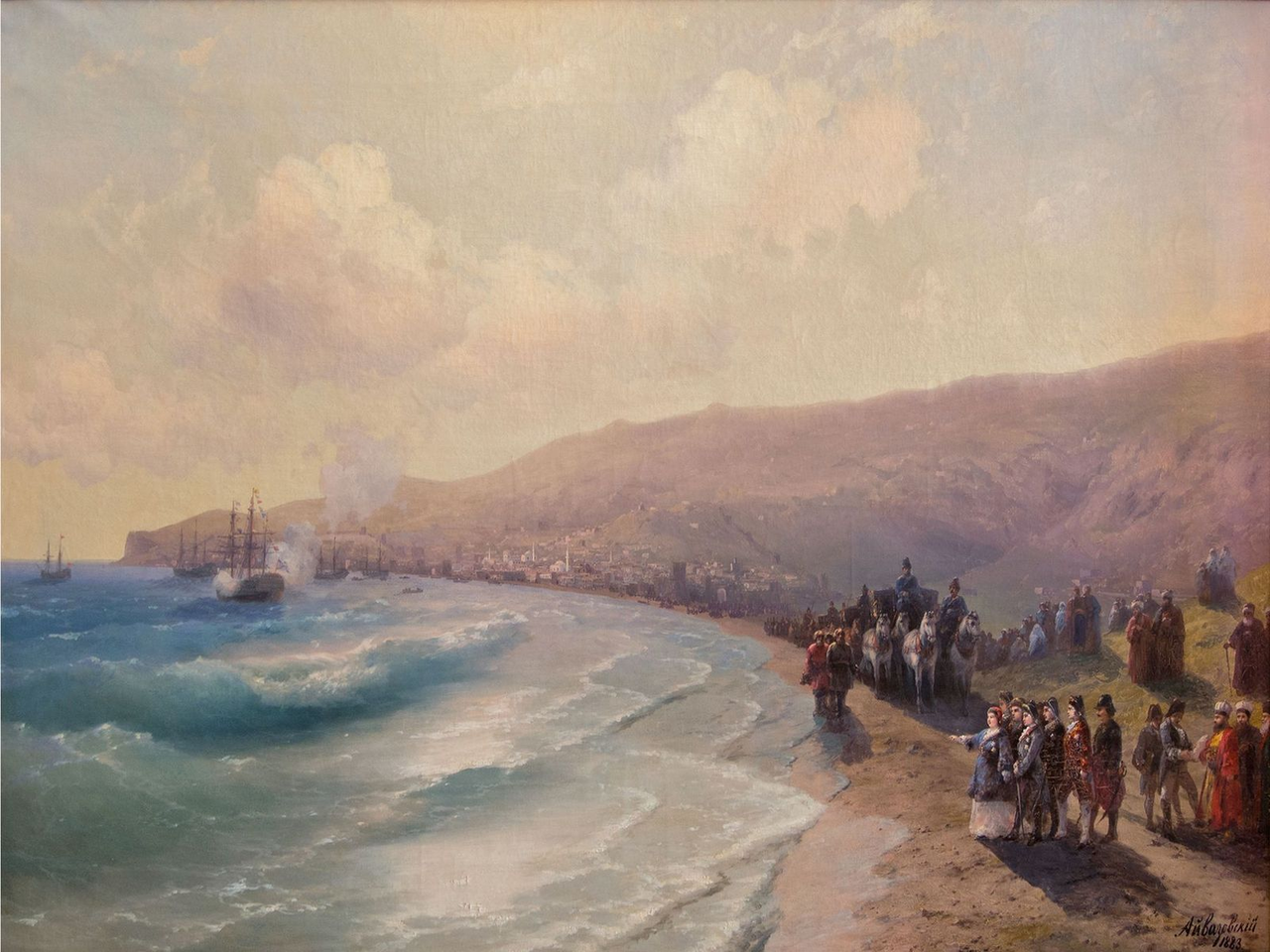A New Era of Foreign Policy
Our collective reaction to the Russian invasion of Ukraine has shown a distinct lack of understanding of the realities involved in international politics.

“Arrival of Catherine II in Feodosia”, painting by Ivan Aivazovsky portraying the Russian monarch visiting Crimea in the aftermath of the annexation
When the Russian military attacked Ukraine in the early morning of 24 February 2022, a number of leading politicians and heads of state in Europe and the US — among them the Chancellor and the foreign minister of the Federal Republic of Germany — claimed they were surprised, even shocked, by this development. These political leaders said this publicly, despite the fact that their foreign intelligence services had been collecting quite detailed information on Russian troop movements across the border from Ukraine for weeks. This reaction shows a disquieting lack of understanding of the realities involved in international politics. The fact that leading politicians in some of the most powerful nations in the world were surprised by the idea that the foreign policy decisions of their governments had been leading to an actual shooting war is appalling. The level of disconnectedness with reality that was at display actually gave me pause for a number of days while I was trying to figure out what was going on in the world.
This Thursday in late February of 2022 will be remembered in the history books. It was the start of a new era of foreign policy in Europe, and quite possibly, for the whole world. Not because Vladimir Putin did something unthinkable when he toppled the post-Cold War status quo in Europe, but because it laid bare the shortcomings of a whole generation of politicians who, over the preceding decades, had actually talked themselves into a fantastic understanding of the world in which wars in Europe were somehow not possible — while ignoring all the obvious warning signs to the contrary. Like the fact that the very war they thought would never happen had actually already been happening for eight years before they suddenly woke up from their blissfully ignorant slumber.
Now is the time for all of us who want peace and a stable political order in Europe, and the rest of the world, to relearn basic knowledge about politics contained in our historical records, as laid out by the political thinkers of the past. None of what has happened in the last weeks, or the years leading up to it, is new or unprecedented. Crimea was first annexed by the Russians in 1783. The attack on Ukraine bears striking similarities to Yeltsin’s attack on Chechnya in 1994. And finally, Putin’s use — and backing — of separatist-controlled regions as a pretext to exert direct Russian military control on neighbouring countries dates back to the Russio-Georgian war of 2008. In a similar vain, wars in Europe have always been a reality. The Balkans were on fire all throughout the 1990s, with NATO involvement, one might add. Politicians who knew their history and had a good grip on the realities of foreign policy and power politics would have seen the distinct possibility of what Putin was planning and would not have assumed — following ridiculous misconceptions about human nature mostly informed by idealism and a desire to see the world as a better place than it actually is — that the Russians were bluffing. And if you read Machiavelli, Clausewitz or Bismarck in school or university, you can hardly be surprised by current developments.
To me, it was a profound shock to see how clueless political leaders and the public at large reacted to the events of the last few days. It reminds of the gormlessness with which European politicians stumbled into war in the runup to 1914 and again before 1939. As a writer, this awoke a deep need in me to address this situation by writing about it. I realise that it might not be the most impactful way to deal with the situation; to quote Otto von Bismarck:
“It is easier to criticise than to govern.”
But it nonetheless is what I do best. Therefore, I have decided to start a newsletter in which I will publish my views on the ongoing crisis, its wider implications on the world and other political topics of interest. The goal of this publication is to look at the world with the eyes of an observer commited to the idea of Realpolitik — the art of the possible in politics. Hopefully, this will promote a viewpoint grounded in realism and increase the understanding of lessons learned in the past. Because only through understanding can we prevent history from constantly repeating itself.
Listen to this article narrated in my own voice:
This is an archived issue of my newsletter Realpolitik. If you want to receive new issues immediately and directly to your inbox, you can sign up for it here. Subscribe to audio versions of the articles as a podcast with this RSS feed.
